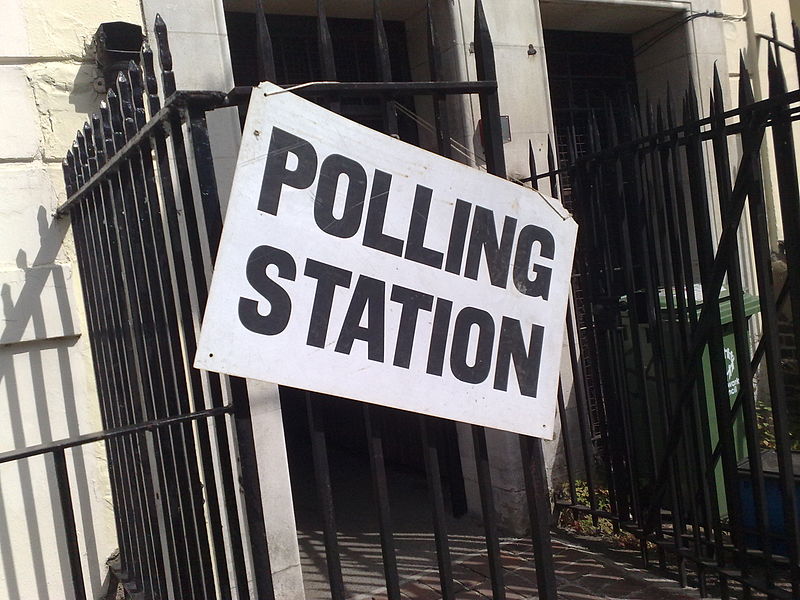The upcoming general election in the United Kingdom has provided the very real chance that a number of Sikhs could be elected to Parliament. Whilst they will not be the first to take up that office, most successful candidates will be from a new generation of Sikhs growing up in the west. Their respective candidacies have received coverage and wholehearted well wishes from the various quarters of Sikh media and organisations. Whilst this will come as no great shock, I wonder if such a welcome is perhaps short-sighted and frankly nepotistic, after all, what if any changes can we expect to the issues that are of importance to the Sikh community, with the mere election of a candidate who happens to be Sikh?
When Manmohan Singh became Prime Minister of India under a Congress Party Government in 2004, much noise was made of a Sikh holding the highest post in the nation. It was mooted from many quarters on the sub-continent that this was symbolic of a rising India where Sikhs and other minorities were not only free from discrimination, but respected as equals. However, this sentiment like the statement was wholly untrue, based on a selective view of reality. Manmohan Singh was a Prime Minister who happened to be a Sikh; he was not a Sikh who became Prime Minister. The difference may seem slight, but it is vast. Singh was elected to office on the basis of his political acumen and his intellect as an economist and not because he was a Sikh who was acting in the interests of the Sikh people through his candidacy. The same can and should be said for almost every politician elected worldwide who happens to be Sikh; their chosen way of life is coincidental to their appointment to office, not a factor that determined it.
There has emerged a strange expectation within the Diaspora that a great number of problems faced by the Sikh and Punjabi communities will be resolved by a more visible presence in our respective Parliaments. This is not only false, but a dangerous line of thought that will in my opinion result in a furtherance from Sikhi by the masses born into Sikh households. Even where a renegade politician makes their way legitimately into office in the West with ideas to bring about real change, their first few weeks are spent coming to grips with how institutionalised the corridors of power are. Dissenting voices that traverse outside of what is expected – as a Sikh voice would – are repeatedly ushered back into line, eventually succumbing to become a part of the system, or to walk away altogether.
It is my contention that the issues facing Punjabis and Sikhs, as well as other minority groups devoid of centralised power bases, cannot be resolved through mere policy changes because their roots are systemically embedded into the system. The two-terms of office won by President Barack Obama may have made great strides towards a more inclusive nation, but there were few victories for black people as a community, and one need only look at the rise of the Black Lives Matter movement to see that his mere presence as a black man did not resolve deep-seated race relations issues. Arguably, the biggest issue that concerns Sikhs worldwide continues to be the state of Punjab and how our host nations relate to the Indian State in this regard as well as more generally. As major incidents in recent years have shown, Sikhs in Punjab continue to be mistreated and feel aggrieved at having their demands dismissed outright, without any consideration whatsoever. But the biggest talking point remains the events of 1984 and in the last two decades in particular, a push to acknowledge the Genocide that was perpetrated that year.
I may be wrong (indeed I hope so), but I get the sense amongst some Sikhs of all generations, that having a visible Sikh presence in western Parliaments will see acknowledgement of the wrongs done to Sikhs in recent decades, actions taken in way of reparations, and perhaps even a restart of open discussions as to the future of the region that were terminated when the Indian and Pakistani states came into being seventy years ago. If this is the case, we haven’t thought this through. If a provincial Parliament, a national Government, or even an international body, acknowledges that Sikhs faced Genocide in 1984, what changes in Indian Punjab? There will be no weight of pressure on Government demanding reparations or even change in the subcontinent merely because of such a statement and to suggest there might be shows a complete misunderstanding of what has happened to Sikhs and the Punjab in the last hundred years.
None of this means that candidates who are Sikh should not stand for political office or indeed that they should not command our support. My argument is that support for a candidate must not be unconditional simply because they are Sikh; it should be based on our affirmation of the policies they advocate, our respect for the depth with which they grasp the issues of importance to their specific constituents, and their ability to speak to and for all citizens of the country.
Without a doubt we need to become more politically engaged, but that doesn’t happen through the election of a handful of members of our community. It comes through nurturing a more educated, active and experienced Sikh community. Our comprehension of issues ranging from healthcare to world trade agreements must go beyond the surface-level headlines that we all-too-readily swallow from the press, social media and community leaders. It is a road that is difficult to travel down, but one that is at the heart of the Sikh experience –realisation of the self, of the reality we exist in, and that which we do not comprehend. We should appreciate that Sikhs elected to political office are politicians who happen to be Sikhs, not Sikh politicians.






